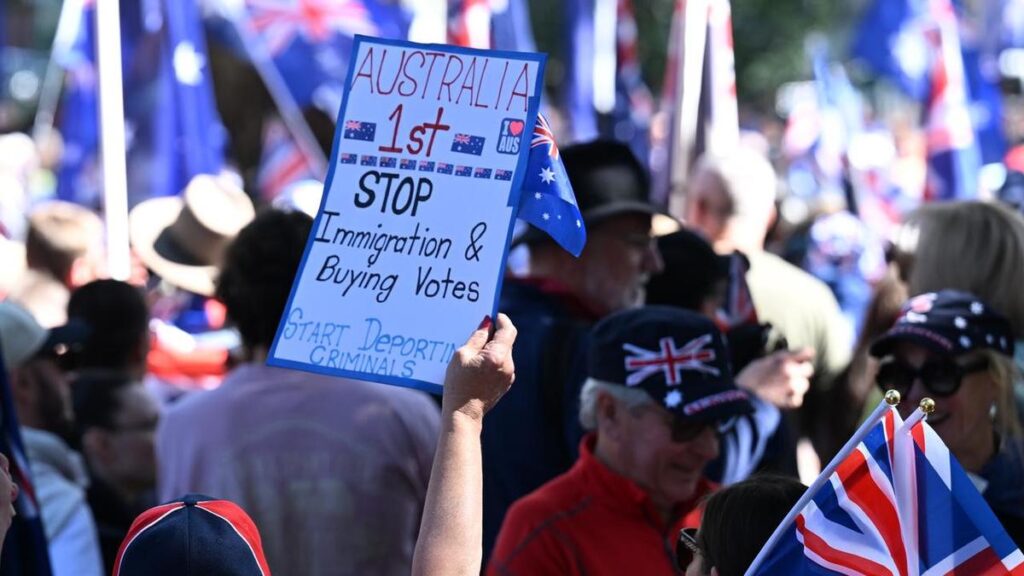
The right wing of Australia’s Liberal Party is poised to leverage its recent success in reshaping climate policy to influence the upcoming debates on immigration. Following a significant decision to dilute the party’s commitment to a net-zero emissions target by 2050, the Liberals and Nationals are set to meet on March 10, 2024, to endorse a controversial joint plan that could further alienate moderate supporters in urban areas.
The recent policy shift represents a notable achievement for the party’s right faction, which has gained momentum after two consecutive elections that saw many moderate members defeated. This victory was further solidified by the actions of Opposition Leader Sussan Ley, who conceded to the demands of the party’s conservatives regarding the net-zero target.
One conservative member suggested that the forthcoming immigration debate would echo the recent climate negotiations, indicating a repeat of tensions within the party. Despite this, there are currently no plans to challenge Ms Ley’s leadership, as conservatives feel they have successfully secured their policy objectives.
Moderate members of the Liberal Party are expressing concerns that the Nationals may take the lead on immigration policy, similar to the way they maneuvered during the climate discussions. However, sources within the Nationals reject these claims, asserting that they will adhere to the official party room process for policy development.
The immigration topic is particularly complex for the Nationals, whose regional base relies on migrants to fill essential roles, such as farm labourers. Among the options being discussed is a proposal to adjust Australia’s migration rate based on the availability of housing, ensuring that an influx of new arrivals does not exacerbate the existing housing crisis.
Ms Ley acknowledged that immigration is the next significant issue for the Liberals and emphasized the need for a respectful dialogue. “The problems we’re facing are not the fault of any migrant or migrant community. They are failings of infrastructure,” she stated, underscoring the importance of addressing underlying issues.
Political analyst and former Liberal staffer Tony Barry cautioned that migration could pose a considerable risk to both the Labor Party and the coalition. He noted the potential for mobilizing voters who may feel disconnected from mainstream politics. “Both sides will need to communicate their position with precision,” he advised, highlighting that the framing of their messaging will be crucial.
Concerns over the party’s relationship with migrant communities are heightened by the rhetoric of some members. Paul Scarr, the Opposition’s immigration spokesman, represents a more moderate viewpoint and has strong ties to multicultural groups. He is conscious of the impact that negative comments about migrants could have on voter perception and support.
In March, Andrew Hastie, a potential Liberal leadership contender from Western Australia, resigned from his role as opposition home affairs spokesman due to disagreements over immigration policy. His controversial remarks about reducing migrant intake and suggesting that Australians feel like “strangers in our own home” have drawn criticism and may further complicate the party’s stance.
Tensions reached a peak when Ms Ley dismissed former frontbencher Jacinta Nampijinpa Price from her veterans affairs position after Price refused to retract comments suggesting that Labor was prioritizing Indian migrants to gain electoral advantage. This incident highlights the growing rift within the party regarding immigration and the broader implications for its electoral strategy.
As the Liberal Party prepares to navigate this complex landscape, the upcoming discussions on immigration are expected to be contentious, with significant implications for the party’s unity and electoral appeal.







